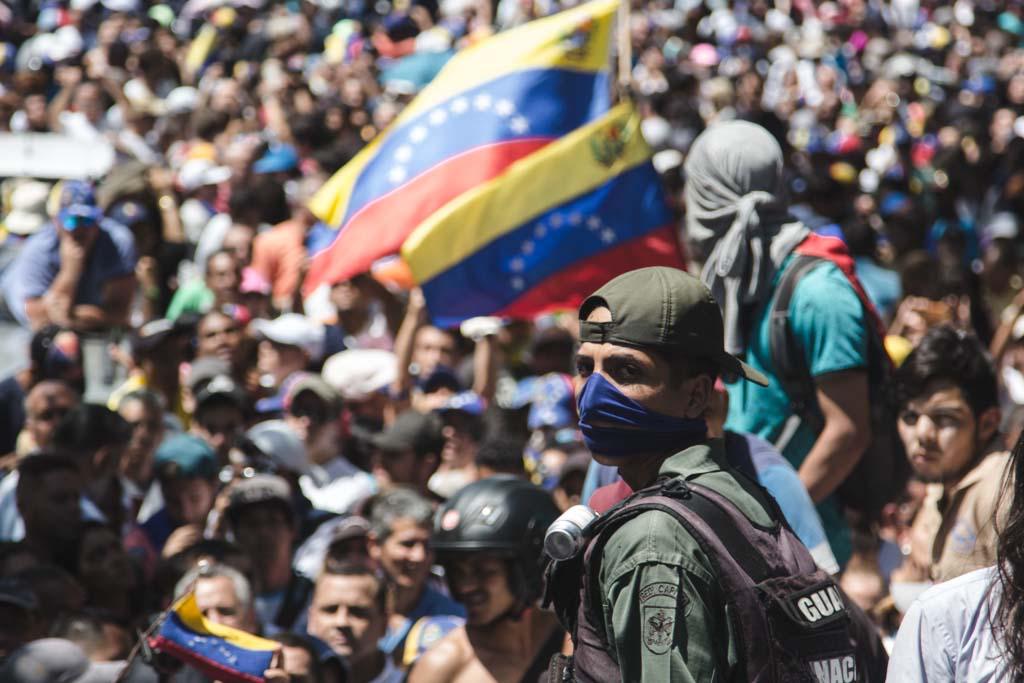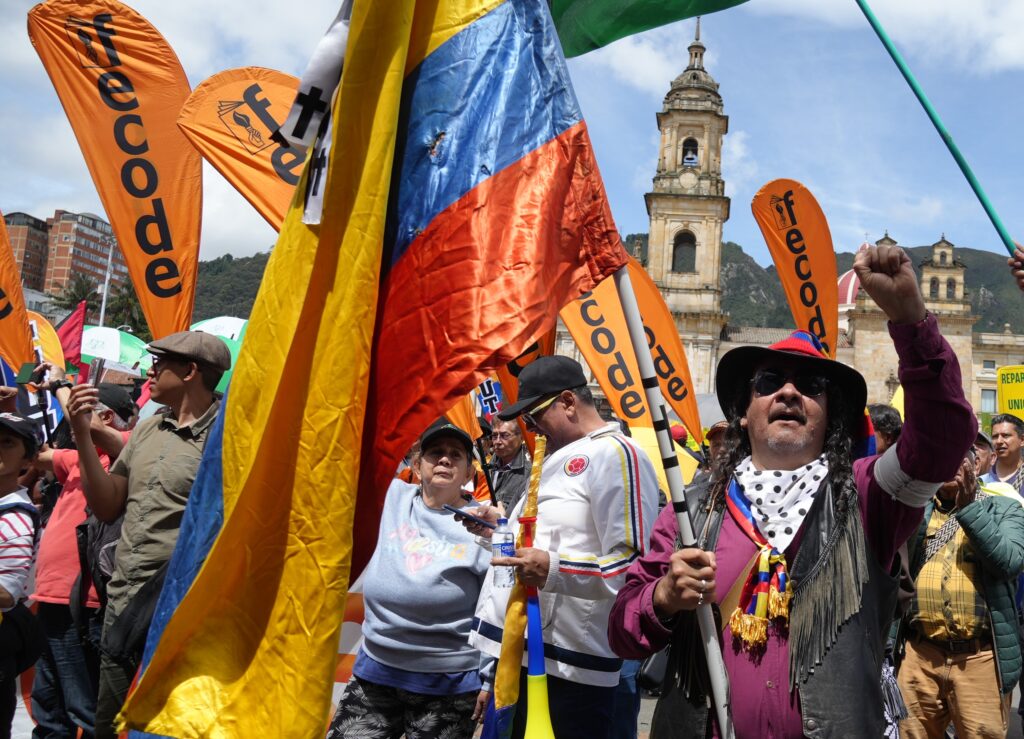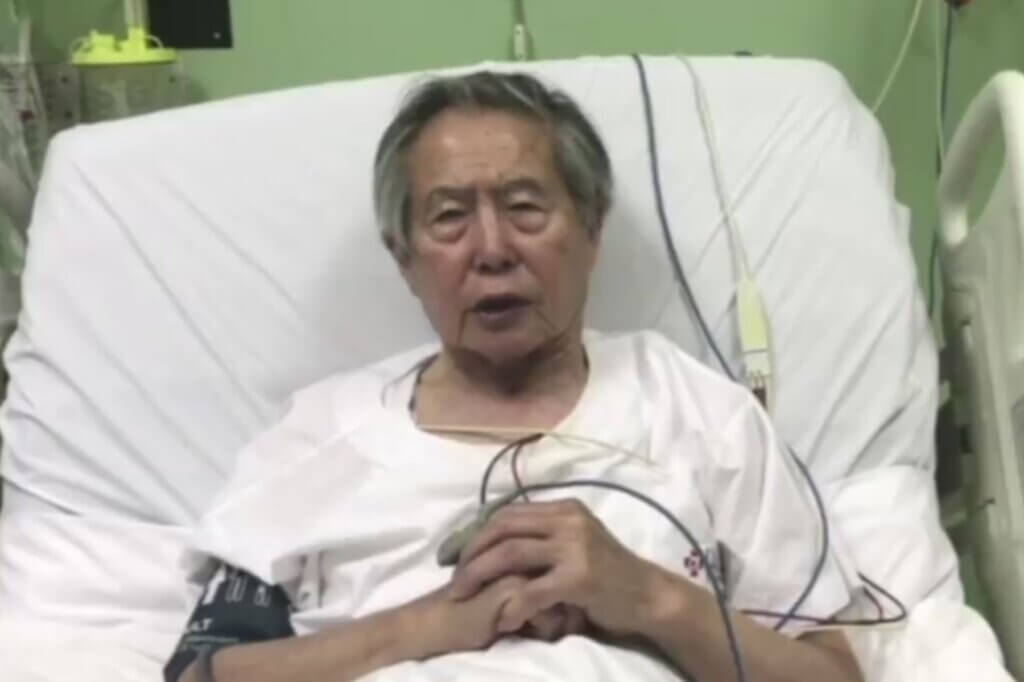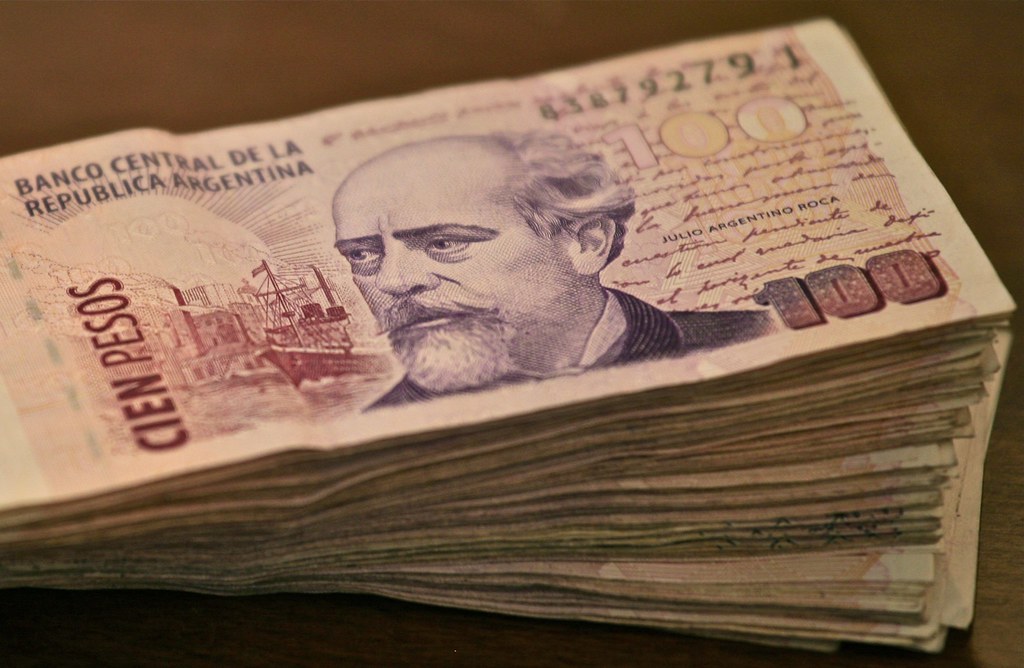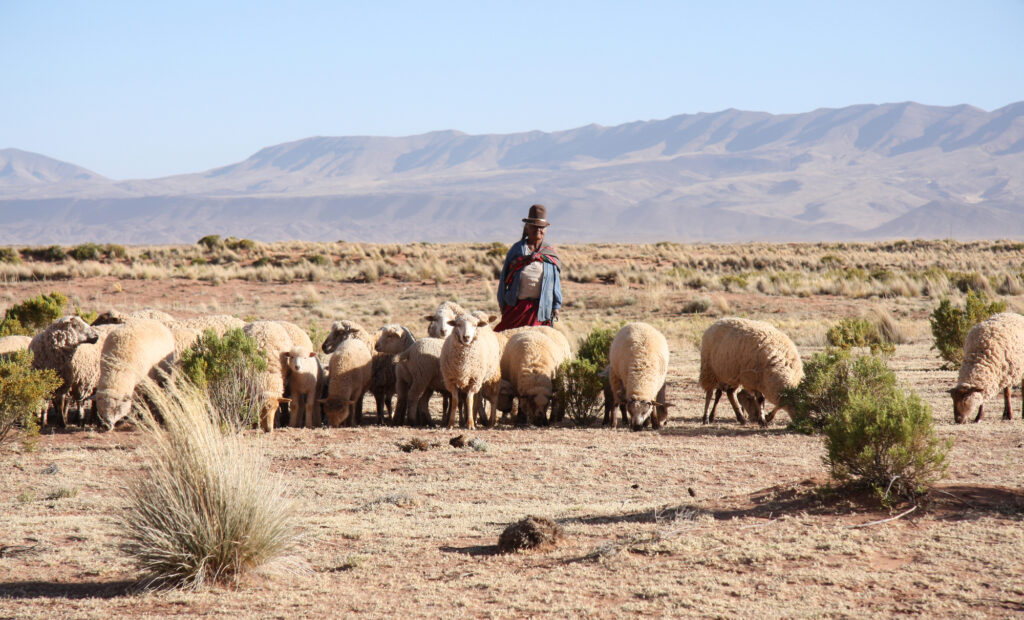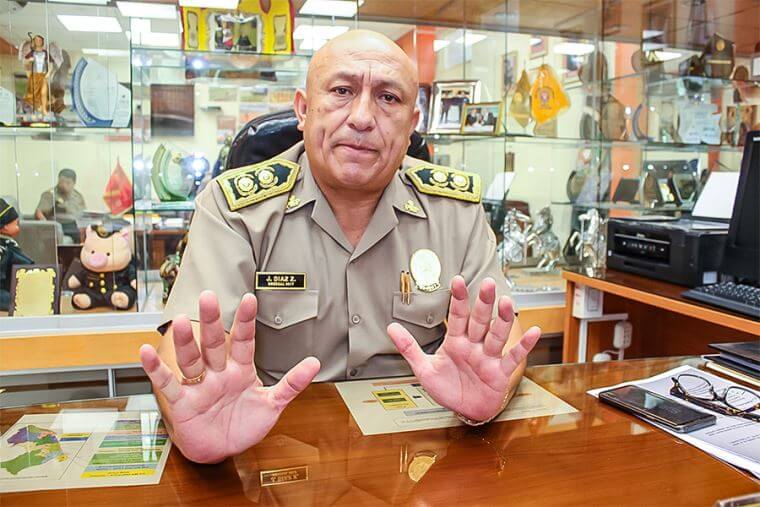Early Tuesday morning in Caracas, Venezuela, opposition leader Juan Guaidó posted a video on Twitter calling the Venezuelan people to mobilise against the “usurper,” President Nicolás Maduro.
About a dozen soldiers flanked him at La Carlota airbase, and he made repeated mentions of the National Armed Forces who would aid in the restoration of a free Venezuela. He was also accompanied by Leopoldo López, Guaidó’s political mentor and ally who Efecto Cocuyo reported was released today by Guaidó’s armed forces contingent after over two years of house arrest.
En el marco de nuestra constitución. Y por el cese definitivo de la usurpación. https://t.co/3RD2bnQhxt
— Juan Guaidó (@jguaido) 30 de abril de 2019
Military Support
The actual number of military personnel who have deserted Maduro in preference for the self-proclaimed interim president Guaidó is unconfirmed, although Reuters reported last week that the number of desertions was “rising.” However, there have been comments from political analysts stating that it is unlikely Guaidó has enough military supporters to effectively challenge forces loyal to Maduro.
Reuters also reported that the majority of armed forces members who have defected to Guaidó are lower ranking officials, as those in higher positions have better salaries and therefore less motivation to defect. According to the New York Times, however, Guaidó told reporters that “there are generals, there are lieutenant colonels, there are majors, there are colonels – it’s a reflection of the country.”
Maduro took to Twitter this morning to assure supporters that he spoke to his commanders across the country and has “total loyalty to the people, the constitution and the country.” Minister of Defense, Vladimir Padrino López, accused Guaidó of attempting a coup, adding “Always loyal, never traitors!”
On Twitter, the Bolivarian Armed Forces (FANB) and its Commander General, Jesús Suárez Chourio, stated their “absolute loyalty” to Maduro and the “categorical rejection” of the coup attempt, which they state is being carried out by a “minority.”
These pro-Maduro sentiments have been echoed on social media by the Navy, the Militia, the AeroSpacial Defence, the REDI (regional strategic defense) and the CEO (Strategic Operation Command).
International Support
Guaidó tweeted that he still has the support of a large swathe of the international community, and this is confirmed by multiple heads of state such as Jair Bolsonaro, Sebastián Piñera, and Iván Duque on Twitter.
The U.S. Department of the Treasury also released a statement today, expressing their support for Guaidó, adding that they “and their allies stand ready to leverage the tools of the international financial community” to support Venezuela’s economy in the event of Guaidó becoming president.
Jorge Arreaza, Venezuela’s foreign minister, released a communique this morning from the ALBA-TCP, denouncing the “attempts to violate constitutional law” in Venezuela. The ALBA-TCP is an international alliance for Latin American countries. Among other Caribbean countries, the ALBA-TCP includes Venezuela, Cuba, Bolivia and Nicaragua, who have all maintained their support for Maduro.
Right Now
There have already been violent clashes in Venezuela, with Reuters and Venezuelan news sources releasing images of armoured cars attempting to run over protesters. The New York Times reported that witnesses had seen the use of tear gas, and videos on Twitter show gunfire in the streets.
#ATENCIÓN | Ballena de la GNB arrolla a manifestantes en Caracas
— NTN24 (@NTN24) 30 de abril de 2019
Señal en vivo aquí → https://t.co/Vc7XXJbARG pic.twitter.com/1axrAwoUaE
El Tiempo reported that Colombian armed forces have been stationed at the border with Venezuela for preventative and security measures. The border between the two countries stretches for 2200 kilometers.


